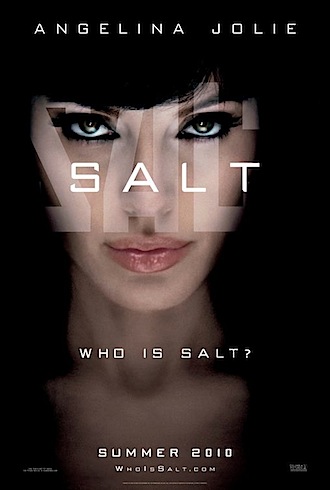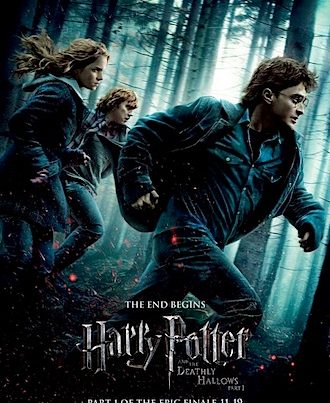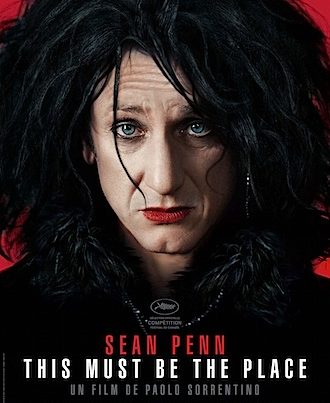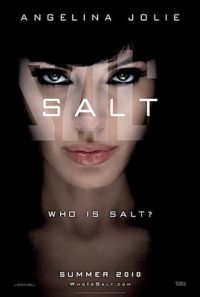 If I had to use a four letter word starting in ‘S’ and ending in ‘T’ to describe the new Angelina Jolie thriller, Salt wouldn’t be the first word I would think of. The last time Ms Jolie played an action heroine she was a weaver/assassin receiving her orders from a magic loom and her new film is only slightly less ridiculous. What we have here is an unimaginative reboot of old Cold War ideas, as if the script was found in someone’s draw and all they’ve done is blow the dust off it.
If I had to use a four letter word starting in ‘S’ and ending in ‘T’ to describe the new Angelina Jolie thriller, Salt wouldn’t be the first word I would think of. The last time Ms Jolie played an action heroine she was a weaver/assassin receiving her orders from a magic loom and her new film is only slightly less ridiculous. What we have here is an unimaginative reboot of old Cold War ideas, as if the script was found in someone’s draw and all they’ve done is blow the dust off it.
Jolie plays Evelyn Salt, a CIA spook on the Russian desk. When we meet her she’s in her underwear being tortured by the North Koreans. A spy-swap gets her out even though, according to the rules, she should’ve been left to her fate. Back in Washington, she’s married to the world’s expert on spiders (he studies them in jars at the kitchen table) but he’s German so obviously not above suspicion.
A former Soviet agent walks in off the street and fingers Salt as a secret double-agent, planted in the US as a child and now ordered to kill the Russian President in a convoluted attempt to restart the old Cold War. Instead of denying the preposterousness of all this, she runs and uses her physique, experience and training to escape – pursued by colleagues Chiwetel Ejiofor and Liev Schreiber.
Can it be true? Is she really a Soviet sleeper agent or will there be another twist before we can all go home? Anyone who has seen Jonathan Demme’s The Manchurian Candidate will know what’s coming – if ever a revelation was spoiled through unimaginative casting it’s this one.
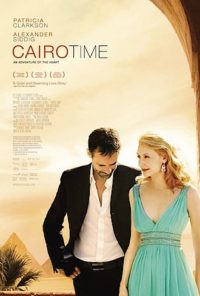 While Salt goes at 100 miles an hour, relentlessly driven by some effective chase direction by Aussie Phillip Noyce, Cairo Time seems to go in reverse – I haven’t seen anything quite so tediously slow in years. Patricia Clarkson (a perennially reliable supporting actor in films like Vicky Christina Barcelona and Elegy) is a Canadian magazine editor arriving in Cairo to meet her husband who works for the UN in Gaza.
While Salt goes at 100 miles an hour, relentlessly driven by some effective chase direction by Aussie Phillip Noyce, Cairo Time seems to go in reverse – I haven’t seen anything quite so tediously slow in years. Patricia Clarkson (a perennially reliable supporting actor in films like Vicky Christina Barcelona and Elegy) is a Canadian magazine editor arriving in Cairo to meet her husband who works for the UN in Gaza.
She’s expecting a romantic holiday away from the stresses of both their lives but when he is delayed she becomes very friendly with Tareq, a former colleague of her husband who now runs a sedate men-only coffee shop in the heart of the city. Tareq is played by the very dishy (so I understand) Alexander Siddig so it’s easy to understand why this brittle blonde could be attracted to him. Something seems to be wrong in her relationship but whatever it is doesn’t get explained. Maybe it’s just the long distance.
Anyway, Clarkson’s stay in Cairo seems to play out in real time and there are long sequences of her sitting alone in a hotel room or café and we’re supposed to feel sorry for her – although for what exactly isn’t really clear.
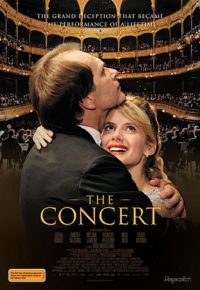 If you like your characters and situations painted with house paint and rollers rather than something a little more precise then you’ll get more than I did out of The Concert, a Festival favourite bouncing back almost immediately to general release.
If you like your characters and situations painted with house paint and rollers rather than something a little more precise then you’ll get more than I did out of The Concert, a Festival favourite bouncing back almost immediately to general release.
Alexei Guskov plays a former great conductor of the Bolshoi Orchestra in Moscow, now humiliatingly reduced to cleaning their offices. 30 years ago he was given the push for hiring Jewish musicians and neither he, nor the musicians, have ever gotten over it. He intercepts a fax inviting the orchestra to play a concert in Paris and decides to get the band back together. They will travel to France, pretend to be the Bolshoi and get their mojo back.
It’s a situation built for farce-with-heart (an often winning combination) but this reviewer felt that it could have done with a little more subtlety in the comedy and a little less mawkishness in the moving scenes of redemption at the end.
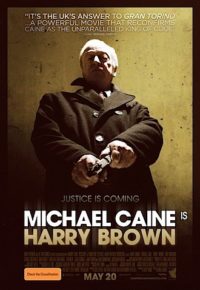 Michael Caine proves he can still pull out a top performance in Harry Brown, a British urban thriller about a pensioner vigilante. Unlike Clint Eastwood’s Gran Torino which touched on similar themes, Harry Brown is a tawdry and conservative affair that’s made to appeal to ACT voting Mr and Mrs Norder as well as their terrified daughter Laura. Eastwood managed to make a film about the limits of violence and the potential of understanding. Harry Brown has no such ambition.
Michael Caine proves he can still pull out a top performance in Harry Brown, a British urban thriller about a pensioner vigilante. Unlike Clint Eastwood’s Gran Torino which touched on similar themes, Harry Brown is a tawdry and conservative affair that’s made to appeal to ACT voting Mr and Mrs Norder as well as their terrified daughter Laura. Eastwood managed to make a film about the limits of violence and the potential of understanding. Harry Brown has no such ambition.
When his best mate Leonard (David Bradley) is viciously murdered by the drug-dealing young punks on his estate, mild-mannered Marine veteran Harry Brown decides to take his revenge. This is psycho-fascist vigilante wish-fulfillment taken to it’s ugliest extreme. Like Charles Bronson in Death Wish, Caine is reacting to a supposed failure of authority, a failure of society itself. These degenerate criminals are sexually deviant as well as simply malevolent – they must be exterminated – and when the cops can’t keep decent people safe taking the law into your own hands seems perfectly reasonable.
Making the ineffectual detective (Emily Mortimer) female just accentuates the reactionary attitudes on display – it’s anti-feminist as well as anti-progressive. This shouldn’t be surprising territory for Caine who once abandoned Britain when he decided that he didn’t enjoy paying the tax that made things like police forces and education systems possible.
Finally, I’d like to acknowledge the sad passing of Wellington filmmaker Kathy Dudding. She was just finding a wonderfully personal voice and a unique aesthetic and her most recent film, Asylum Pieces, was a highlight of the last Festival. If you can find a way to see it, you should.
Printed in Wellington’s Capital Times on Wednesday 25 August, 2010.

